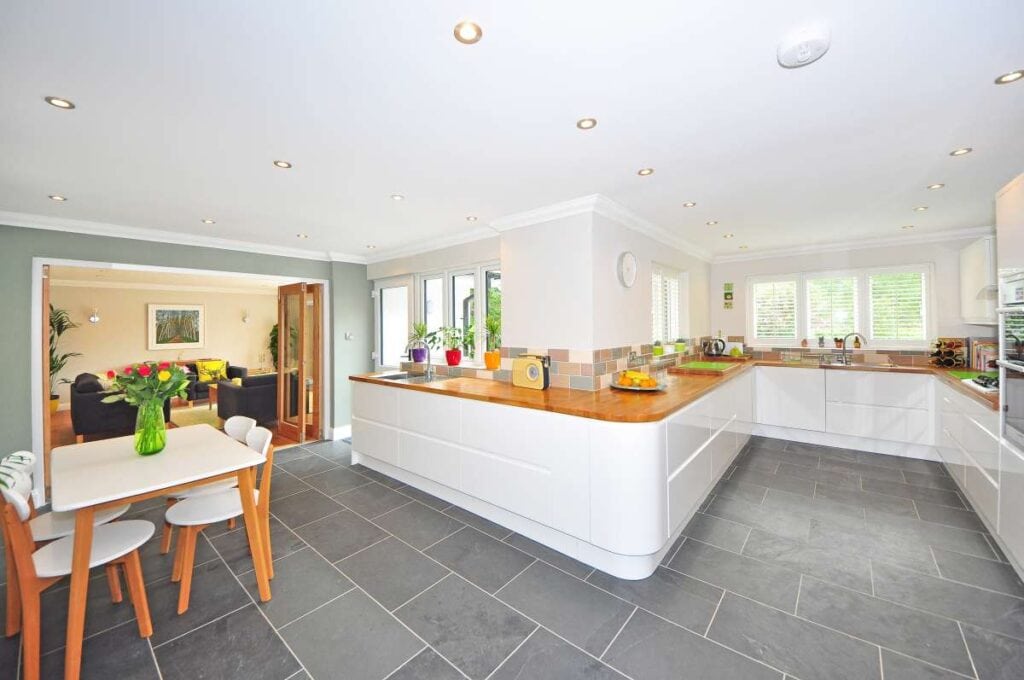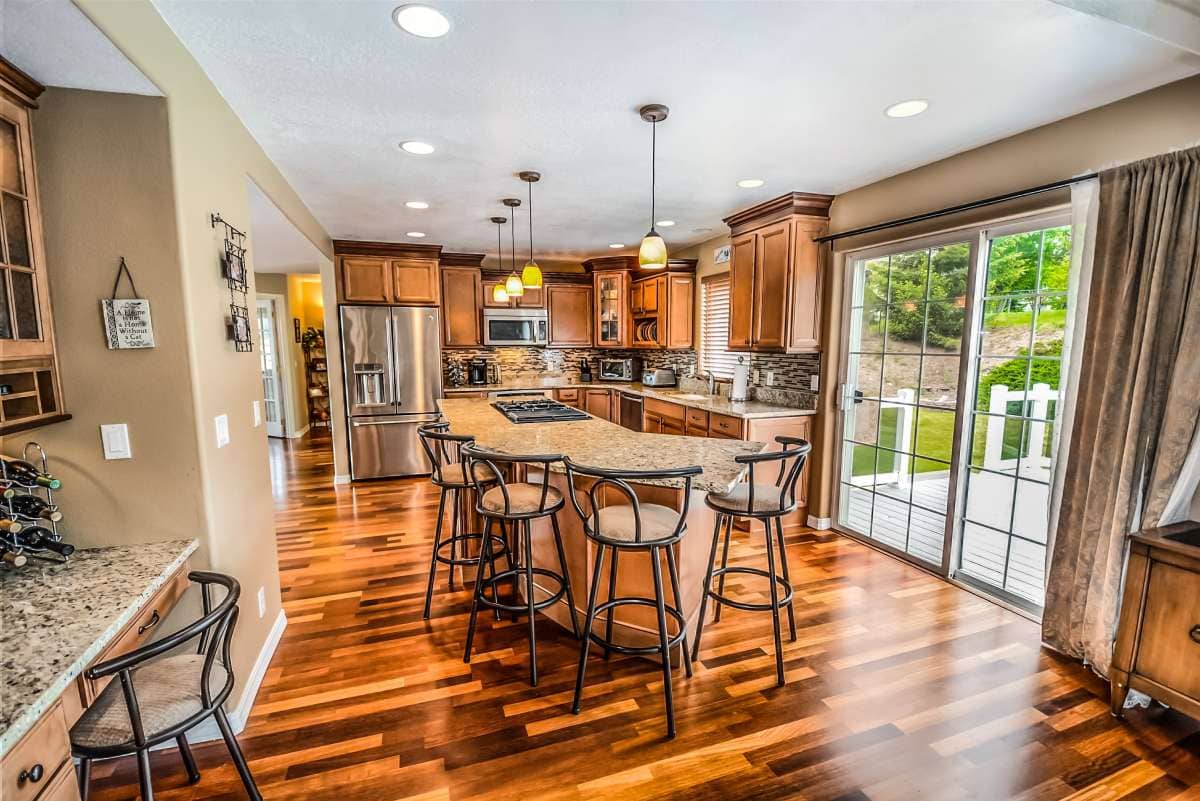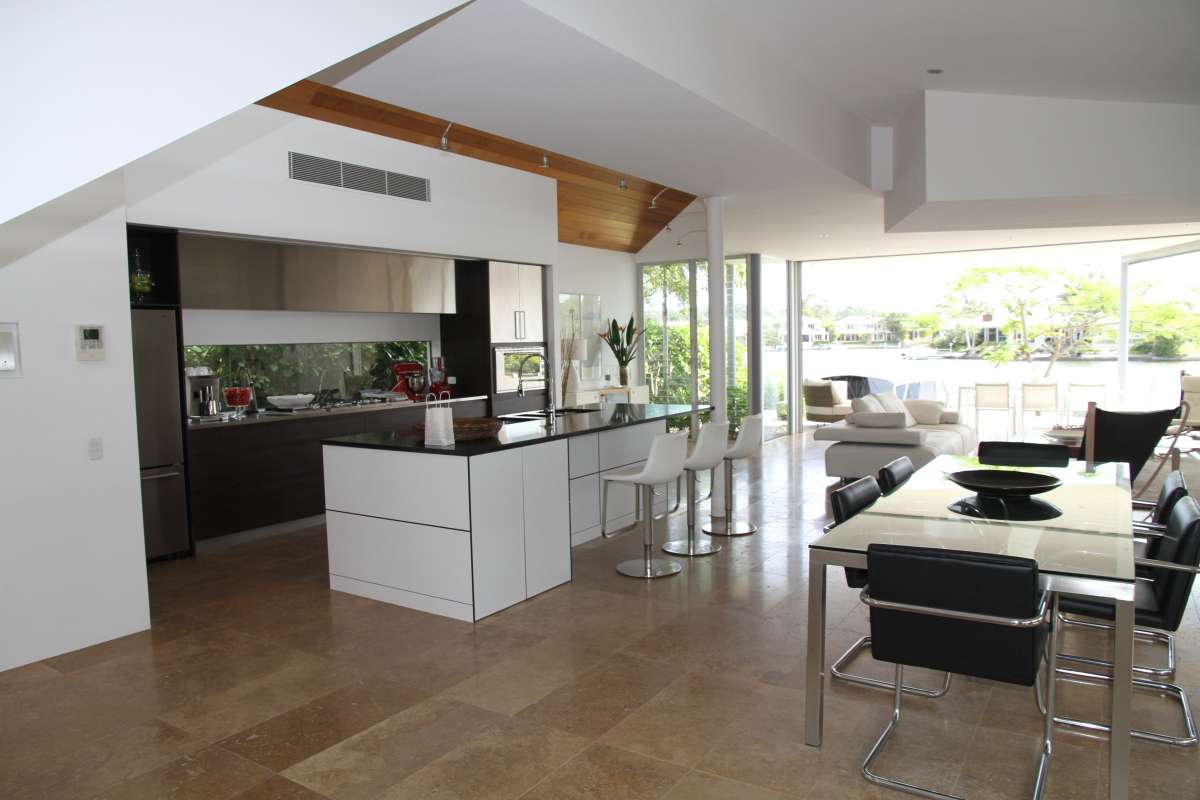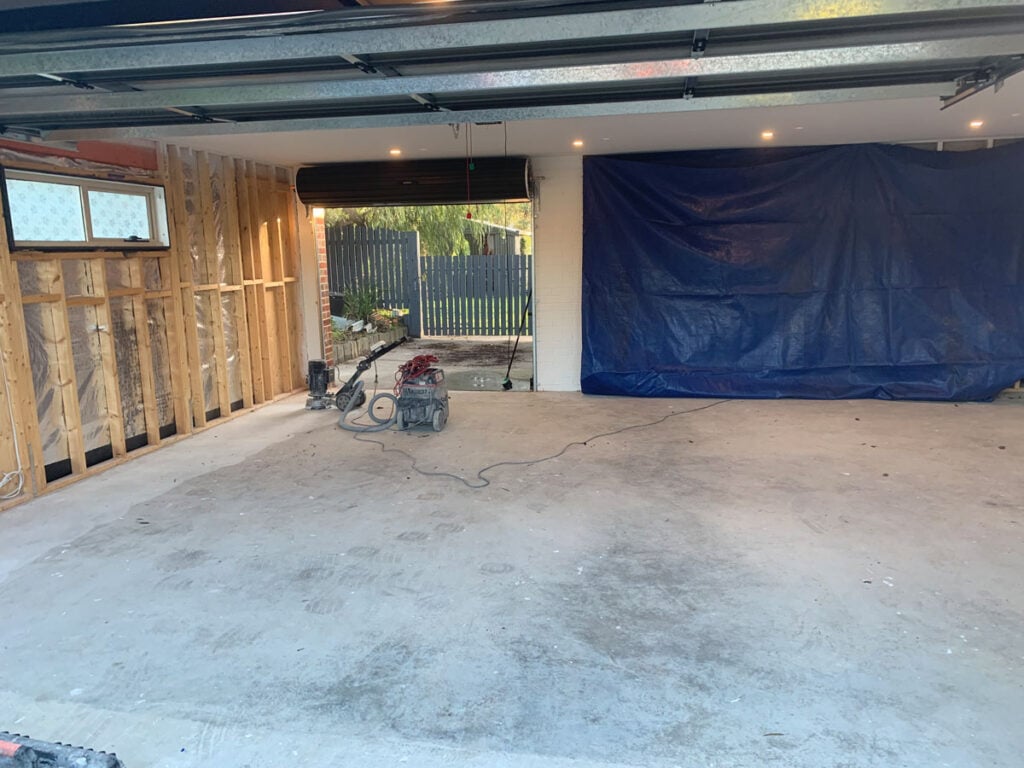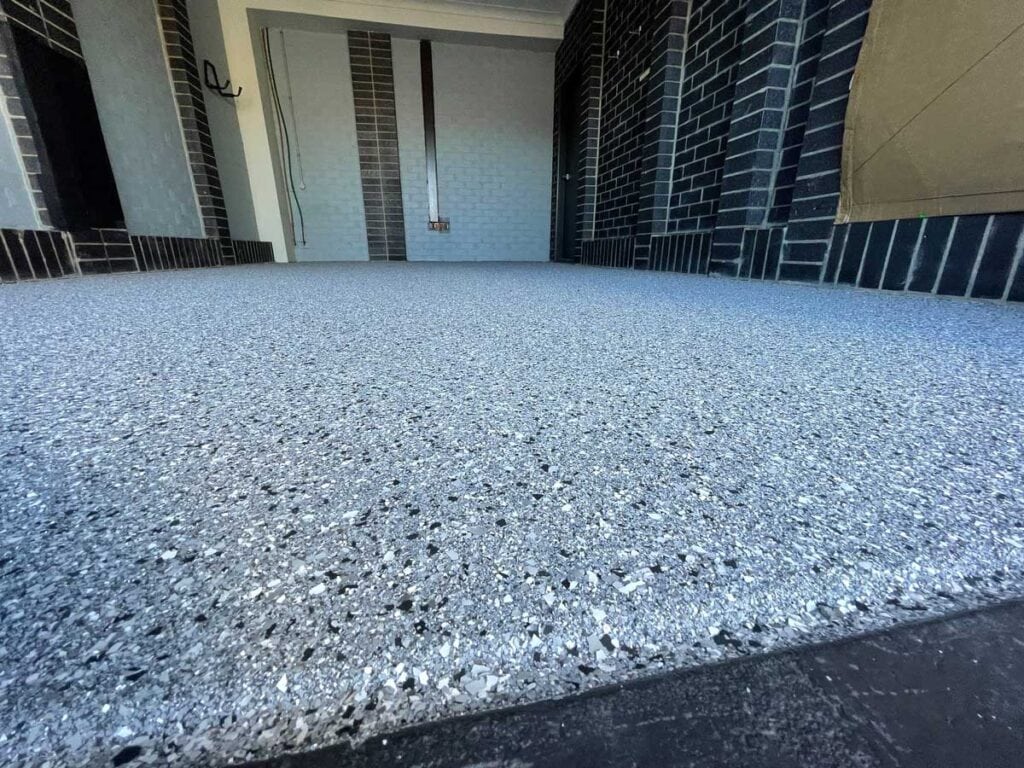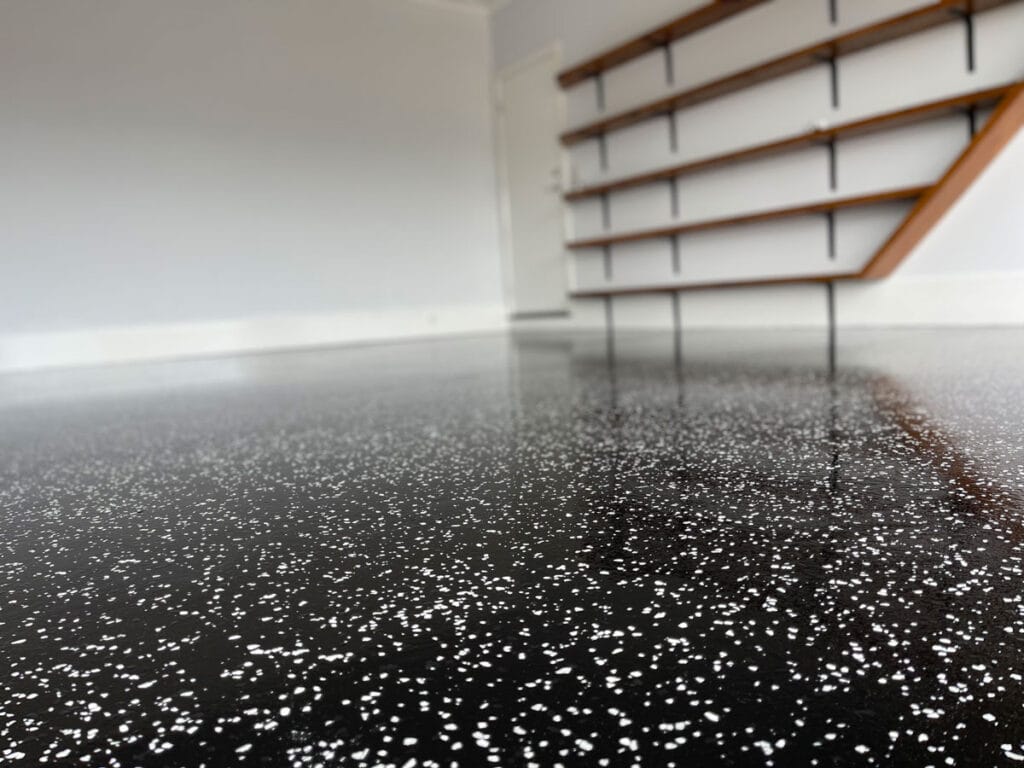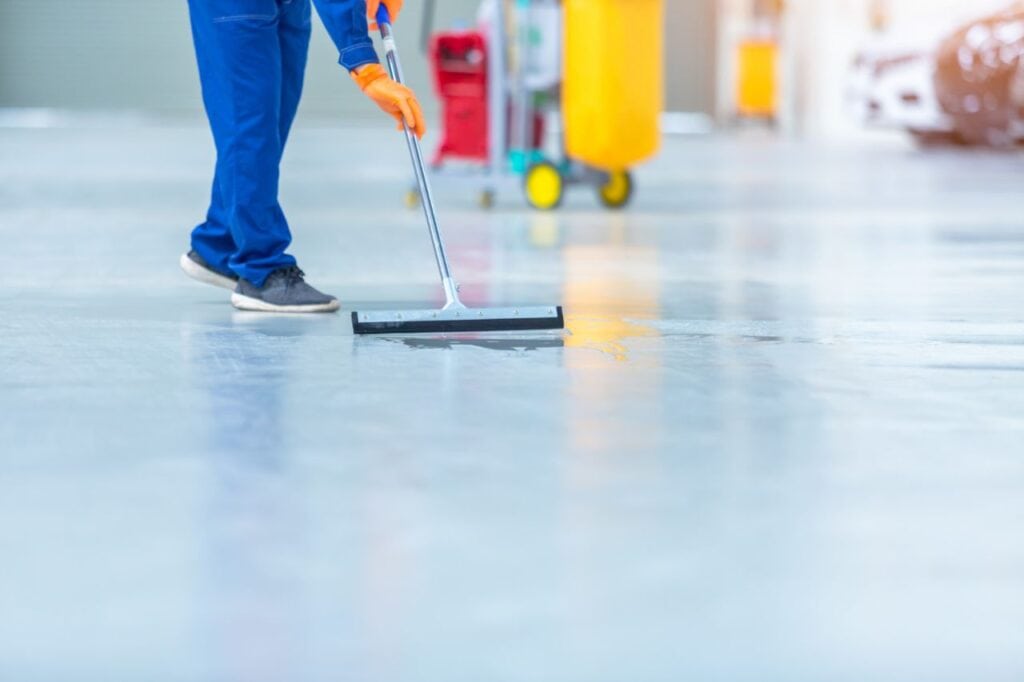When constructing a commercial kitchen, selecting the appropriate flooring is crucial. The floor in a restaurant kitchen faces numerous challenges daily, including high temperatures, continuous water flow, frequent spills, and heavy cooking equipment. These demanding conditions place considerable strain on the flooring material.
Given the wide range of options available, determining the ideal flooring material for a restaurant kitchen can be challenging. Factors such as availability, economic feasibility, and maintenance requirements all play a significant role in the decision-making process.
Commercial kitchen floors endure significant wear and tear daily. In addition to withstanding heat, spills, leaks, and the occasional breakage of glassware or utensils, they must also accommodate staff members' constant hustle and bustle. Moreover, commercial kitchen flooring should possess specific qualities to ensure the safety of kitchen personnel and wait staff who navigate the area.
If you are currently seeking commercial flooring that can withstand the demands of a large kitchen, the following essential information will assist you in making the right choice.
Considerations for Kitchen Flooring Materials
To ensure a smooth and uninterrupted operation in a commercial kitchen, it is essential to take into account the following factors when evaluating different flooring options for the space:
- Durability and Longevity: Given the high level of foot traffic and heavy equipment in commercial kitchens, selecting kitchen flooring that can withstand these daily pressures is crucial.
- Installation, Maintenance, and Repair: While most commercial flooring materials require initial installation time, opting for a durable material from the start can significantly reduce ongoing maintenance and repair costs, as it will not deteriorate quickly.
- Ease of Cleaning and Slip Resistance: The chosen commercial flooring material should possess anti-slip properties to ensure safety, even when exposed to fats, oils, grease, and spilled liquids. It should also facilitate easy and efficient cleaning to maintain daily health and hygiene standards.
- Temperature Considerations: When deciding on flooring options, consider the temperature fluctuations in a commercial kitchen. It is essential to choose a flooring material that is clean, long-lasting, reliable, and adaptable.
You'll need a material that can fulfil many requirements if you're looking for commercial kitchen flooring, also including these:
- Safety: a surface that resists slipping, increases traction, and reduces falls
- Sanitation: a floor that is simple to maintain and resistant to the daily use of harsh cleaning agents
- A pre-treated material for infection control that restricts microbial growth and infection
- A floor that is comfortable for kitchen staff to stand on for extended periods
- Aesthetics: something that supports your branding, fits your interior design scheme, and, if applicable, creates ambience.
What materials then satisfy each of these needs? While natural stone tile and brick are used in some specialised environments, ceramic and vinyl flooring are the two most common flooring choices for commercial kitchens.
Ceramic or Porcelain Tile
Ceramic or porcelain tiles are commonly selected for restaurant kitchen flooring due to their durability and ease of maintenance. These tiles are constructed from natural materials and offer diverse colours and styles, allowing you to find the ideal tile that complements your restaurant's overall aesthetic. Nevertheless, it is essential to note that the grout lines between the tiles can pose challenges regarding cleanliness, as they tend to accumulate bacteria and other contaminants.
Commercial Vinyl Flooring
Commercial vinyl or resilient flooring is a robust choice crafted from a combination of natural and synthetic polymers to maximise its durability. The vinyl flooring category has three types: vinyl composition tile (VCT), luxury vinyl tile (LVT), and sheet flooring.
VCT is produced by combining limestone, filler, thermoplastic binder, and colour pigments into sheets later cut into tiles. While it utilises layers of polish to safeguard its surface, it necessitates regular stripping, waxing, and re-coating, making it an unsuitable option for commercial kitchen flooring.
On the other hand, LVT and sheet flooring offer superior strength and resilience. These varieties primarily consist of a limestone-based material with other composites. They feature a digital graphic film layer applied onto the base layer and a sealed outerwear layer on top. These vinyl floors exhibit durability, heat, water, and stain resistance while also providing exceptional design versatility. Manufacturers can print virtually any design onto the digital graphic film layer, enabling LVT and sheet flooring to replicate patterns and even resemble natural materials like stone tiles. In addition to being highly cost-effective, vinyl floors offer numerous other advantages for commercial kitchen flooring:
- Modern LVT and sheet flooring can be pre-treated to prevent infection.
- One of the most popular and slip-resistant types of safety flooring is vinyl.
- Kitchen staff members' lives are made more accessible because sheet flooring reduces the number of seams on the floor.
- Kitchen staff who spend a lot of time standing and walking on the floor will be comfortable if vinyl flooring is installed over a plush underlayment because vinyl flooring takes on the characteristics of its subfloor.
- Wet mopping is the only necessary maintenance; most cleaning agents don't harm the surface.
Quarry Tile
Quarry tile is another well-liked choice for restaurant kitchen flooring. This type of tile is crafted from clay and subjected to high temperatures during the firing process, enhancing durability and water resistance. Quarry tiles are offered in various colours and finishes and boast easy cleaning. However, it is essential to note that installing quarry tiles can be challenging and may entail higher costs than alternative flooring options.
Concrete
Similar to tile, poured concrete is a timeless choice for commercial kitchens. Concrete is renowned for its remarkable durability and can be finished with various textures. It offers the advantage of allowing decorative inlays and colours, making it a versatile option for customisation. The seamless, complex, and flat surface of concrete ensures it can withstand impacts in the kitchen without sustaining damage. Additionally, concrete is heat-resistant, making it suitable for the high-temperature environment of a commercial kitchen. Its versatility allows it to complement any style or ambience.
However, it is essential to note that concrete is porous and requires sealing to resist discolouration and stains. Furthermore, concrete is only somewhat comfortable to stand on for extended periods. To address this issue, rubber mats can be placed in critical workspaces to enhance comfort for kitchen staff if the concrete flooring is chosen as the restaurant kitchen flooring option.
Natural Stone Tile and Brick
Specialty materials like natural stone tile and brick are used in commercial kitchens. While they tend to be more expensive than ceramic and vinyl flooring, they are often chosen for cafes, delis, and restaurants where the kitchen is visible to the public and plays a significant role in establishing the ambience and branding. Natural stone tile and brick can provide a premium aesthetic and a warm and inviting atmosphere. The hues found in red brick can subtly stimulate hunger in restaurant patrons.
Natural stone tile is created from materials sourced from quarries. Each stone possesses unique characteristics, and its suitability for commercial kitchens varies. It is advisable to avoid polished surface tiles as they become slippery when wet. Opting for honed or brushed materials ensures good traction, while denser stones like slate and granite offer improved stain resistance and easier maintenance. All natural stone tiles are porous and require periodic sealing with a protective coat and regular daily cleaning.
In contrast, brick is resilient but porous, making it vulnerable to water damage. However, it can withstand stains and other dangers with the application of commercial sealers once or twice a year. Some owners also apply additional wax treatments to brick, but to prevent buildup, wax must be periodically removed and reapplied.
Epoxy Flooring
Restaurant kitchens often opt for epoxy flooring due to its durability, slip-resistant properties, and ease of cleaning. Epoxy is a two-part material applied onto the existing flooring surface and left to dry and cure. The resulting surface is highly durable, capable of withstanding heavy foot traffic and spills. However, it is worth noting that the epoxy flooring installation process can be time-consuming and costly. Additionally, the surface may become slippery when wet, requiring caution in such conditions.
Resin Flooring
Resin flooring is an excellent option for commercial kitchens due to its remarkable durability and capability to withstand heavy traffic. Not only is it highly resilient, but it also boasts easy maintenance and cleaning requirements throughout its lifespan. Additionally, resin flooring offers non-slip properties, making it safe for use in kitchens, and it is also anti-static, hygienic, and non-toxic.
The availability of resin flooring in various colours allows for customisation to match the kitchen's décor. Moreover, it is a cost-effective choice, providing affordability without compromising quality. There are three primary types of resin floors: Epoxy, Polyurethane, and PMMA, each with its characteristics and benefits.
What Flooring Options Are Strong in a Commercial Kitchen?
Quarry tile and acid brick are reliable for commercial kitchens due to their excellent durability and slip resistance. These flooring options can withstand the demands of a busy kitchen environment. However, it is essential to note that they can be vulnerable to organic attack over time, and their grout lines may become challenging to clean effectively.
For the highest level of sanitation and longevity, seamless resinous floors are highly recommended. These floors offer a seamless and smooth surface, eliminating the problem of grout lines. Resinous floors are known for their durability and can withstand the heavy use and demands of a commercial kitchen. They also provide excellent slip resistance and can be customised to meet specific aesthetic preferences. Choosing a resinous floor ensures a sanitary, long-lasting flooring solution for commercial kitchens.
For What Reasons Is Resin Flooring Perfect for a Commercial Kitchen?
Many industries, including factories and commercial kitchens, use resin flooring extensively. It offers hygienic and anti-skid qualities and is simple to maintain and clean. It's a tough choice for commercial kitchens.
In contrast to floors with grout or welds, seamless floors give no room for dust to hide or for bacteria and mould to breed. They are the most spartan floor to maintain and the simplest to thoroughly clean.
Because they are designed to withstand the abrasive conditions of food preparation and service, seamless floors for commercial kitchens are durable. They are strong and designed to withstand heavy foot and wheeled traffic. They are also chemical, thermal, and shock resistant.
You can count on your seamless floor to withstand impact from tools, heavy foot traffic, rigorous washdowns, organic acids, hot spills and splatters and shifts in temperature under kettles and other equipment when manufactured and installed by a reputable company. Additionally, seamless floors have advantages like a texture that prevents slipping and fire resistance.
Numerous colour options, including custom options, are available for resinous flooring. A further advantage of seamless floors is that, unlike traditional floors, they will never be disposed of in a landfill after serving your kitchen's needs for a very long time.
What it Boils Down to
The proper flooring is crucial for your commercial kitchen. To get the most out of your investment, it must provide the highest level of performance in terms of hygiene, safety, and durability while also being long-lasting. The best flooring options for commercial kitchens have been examined in this article, along with their benefits and drawbacks.
There is a perfect option for you, whether you want a surface that is easy to clean and maintain or a highly durable floor that can withstand heat and spills.
Conclusion
A restaurant's kitchen requires commercial kitchen flooring due to the high temperatures, constant water flow, frequent spills, and heavy cooking equipment. Durability, longevity, ease of cleaning and slip resistance, temperature fluctuations, safety, sanitation, pre-treated material for infection control, and comfort for kitchen staff standing for extended periods are all important considerations when choosing a floor for a commercial kitchen. All of these elements work together to keep a commercial kitchen running without a hitch. Floors made of ceramic or porcelain tiles are popular in commercial kitchens because they are long-lasting and simple to clean. For maximum strength and longevity, commercial vinyl flooring combines natural and synthetic polymers.
In order to create VCT, limestone, filler, thermoplastic binder, and colour pigments are melted together into sheets, from which tiles are subsequently sliced. Luxury vinyl tile (LVT) and sheet flooring are highly durable and versatile in terms of design. The natural stone tiles known as "Quarry Tile" are reserved for select applications. The durability and resistance to water of quarry tile make it a common choice for commercial kitchen floors. Concrete's adaptability and resistance to high temperatures make it a classic material for industrial cooking spaces.
The luxury look and cosy feel of natural stone tile and brick make them a popular choice for restaurants, delis, and cafés. Because of its porous nature, natural stone tiles need regular sealing to prevent discolouration and staining. The brick is sturdy, but its porous construction makes it susceptible to water damage. Epoxy flooring is popular in commercial kitchens because it is long lasting, resistant to stains, and simple to clean up after spills. Commercial kitchens benefit greatly from resin flooring due to its exceptional durability and resistance to heavy use.
In commercial kitchens, quarry tile and acid brick are dependable because of their exceptional durability and slip resistance. However, quarry tile and acid brick are susceptible to organic attack over time, and the grout lines can be difficult to clean efficiently. In addition to being highly slip-resistant and adaptable to different design choices, resinous floors can survive the rigours conditions of a commercial kitchen. The pros and cons of installing seamless floors in commercial kitchens are the most crucial aspects of this article. Tools, foot traffic, washdowns, organic acids, hot spills, splatters, and temperature changes won't damage them since they are tough, sturdy, chemically resistant, thermally resistant, and shock resistant. They come in a wide variety of colours, are fireproof, and have a texture that resists slippage. For optimal performance in terms of cleanliness, security, and longevity, the flooring in a commercial kitchen must be of the greatest quality.
Content Summary
- Choosing the right flooring is crucial when constructing a commercial kitchen.
- Commercial kitchen floors face challenges such as high temperatures, water flow, spills, and heavy equipment.
- Availability, economic feasibility, and maintenance requirements play a significant role in the decision-making process.
- Durability, longevity, and resistance to daily pressures are important factors to consider.
- Easy cleaning and slip resistance are essential for maintaining health and hygiene standards.
- Temperature fluctuations should be considered when selecting flooring options.
- Safety, sanitation, and infection control are key considerations.
- Comfort for kitchen staff and aesthetics that support branding are important factors.
- Ceramic or porcelain tiles are commonly chosen for their durability and ease of maintenance.
- Grout lines between tiles can pose cleanliness challenges.
- Commercial vinyl flooring offers strength, resilience, and design versatility.
- Vinyl flooring can be pre-treated to prevent infection and is slip-resistant.
- Vinyl flooring reduces the number of seams and provides comfort for staff.
- Wet mopping is sufficient for maintenance, and cleaning agents do not harm the surface.
- Quarry tile is a well-liked choice due to its durability, water resistance, and easy cleaning.
- Poured concrete offers durability, customisation options, and heat resistance.
- Concrete requires sealing to resist stains, and rubber mats can enhance comfort.
- Natural stone tile and brick provide a premium aesthetic and warm atmosphere.
- Different types of natural stone tiles have varying suitability for commercial kitchens.
- Brick requires sealers to withstand stains and water damage.
- Epoxy flooring is durable, slip-resistant, and easy to clean but can be slippery when wet.
- Resin flooring is highly durable, easy to maintain, non-slip, hygienic, and cost-effective.
- Resin floors can be customised to match the kitchen's décor.
- Quarry tile and acid brick are reliable options due to their durability and slip resistance.
- Resinous floors offer the highest level of sanitation and longevity.
- Seamless resinous floors eliminate grout lines and are easy to clean.
- Seamless floors for commercial kitchens are durable and resistant to chemicals and thermal shock.
- Resinous floors come in numerous colour options and are environmentally friendly.
- The right flooring must provide performance in hygiene, safety, and durability.
- There are options available for easy cleaning, maintenance, or withstanding heat and spills.
Frequently Asked Questions
Commercial vinyl flooring is a durable flooring material made from a combination of natural and synthetic polymer materials. It's everywhere, from hotel lobbies and office foyers to schools and hospitals. And it's rapidly being adopted in more and more settings due to design and material innovations.
The overall thickness of the flooring should be 2.5–6mm in overall thickness. Depending on the conditions, foot traffic and location will also factor in selecting the correct LVT or hardwood flooring for your space. The performance of the wear layer you select also impacts the floor's performance.
The most efficient kitchen layouts are U-shaped and island kitchens. These layouts provide ample countertop space for cooking and prep work and allow for fluid movement throughout the room. Galley kitchens often feel "bottlenecked" because there is only one path in and out of the kitchen.
Both natural stone and porcelain are ever-popular options for kitchen floors, thanks to their dense and hardwearing qualities. Natural stone needs sealing only every 3-5 years and is low maintenance, whilst porcelain does not require sealing and is maintenance-free.
Porcelain and ceramic tiles are the go-to option for kitchens regarding durability and practicality. Super-tough, hardwearing and waterproof, and impervious to scratches and stains, a tiled floor should last a lifetime if installed, grouted and sealed correctly.
